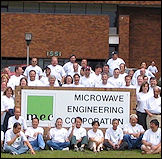![Jason Bourne [Fair Use] Jason Bourne [Fair Use]](https://www.exportlawblog.com/images/jason_bourne.jpg) The affidavit in support of the criminal complaint filed against Gregory Allen Justice for passing allegedly export-controlled data to an undercover FBI agent is a lurid potboiler, a train wreck that you can’t stop watching, a bizarre mashup of David Lynch and Austin Powers. Worse, you don’t know whether to laugh at the defendant, feel sorry for him or recoil in horror.
The affidavit in support of the criminal complaint filed against Gregory Allen Justice for passing allegedly export-controlled data to an undercover FBI agent is a lurid potboiler, a train wreck that you can’t stop watching, a bizarre mashup of David Lynch and Austin Powers. Worse, you don’t know whether to laugh at the defendant, feel sorry for him or recoil in horror.
The tawdry affair starts with Justice, with an extremely ill, housebound wife, getting “catfished” by a woman who aroused his interests by sending him pictures, allegedly of herself, but in fact pictures of an Eastern European model. Justice, in hopes of replacing his sickly wife with a trophy wife, started sending “Chay” (the catfisher’s nom de doom or screen name) boxes of cash and gifts from Amazon including a $900 iPhone, a flat panel television, a charcoal grill and other goodies. Soon Justice was short of cash and, apparently enamored with James Bond, Jason Bourne and the be-wigged Russian spies on the television series The Americans (honestly, I’m not making that up) decided to become a Russian spy and sell everything he could lay his hands on about the satellites made by his employer.
Being a real-life spy is much harder than being one on TV or in the movies, and Justice screwed things up before he even got started. In November 2015, he stuck a thumb drive in his computer. Game over. This set off alarm bells at his employer and everything he did on his computer after that was monitored, recorded, saved, analyzed and handed over to the feds in a neat box with a pretty bow on top. As a result, the closest Justice ever got to a real Russian was when he stood in line at Starbucks behind a guy (from Kansas) reading Tolstoy.
In January his car was surreptitiously searched, and a handwritten note with the address of the Russian Embassy in Washington, DC, was found. One month later an undercover agent, pretending to be a Russian spy, called Justice and negotiated the purchase of documents and information from Justice. For the next three months, there were numerous phone calls and five in-person meetings between Justice and the undercover agent posing as a Russian spy. You can’t help but wonder if the sting stretched out so long because the FBI was having fun with this guy. He was low hanging fruit who liked to discuss recent episodes of The Americans and express his admiration of James Bond and Jason Bourne.
None of this was necessary because he signed a receipt for the money he was given by the undercover agent for the first drop of documents. Yes, you read that right. He signed a receipt for the money. Seriously. I’m not even a spy, nor have I pretended to be one, in my spare time, on TV, or otherwise, and even I know that you don’t sign receipts for the money that the Russkies pay you for spying.
Above and beyond all this, the affidavit says that Justice asked the fake spy to help him buy drugs that, it appeared, he planned on using to get his wife out of the way and close the deal with “Chay.” And he was also apparently supplementing his spy payments by dealing GHB, a controlled substance, on the side.
The real question, of course, in this: how much time and money was spent in building the case against a guy who makes Austin Powers look like Albert Einstein and who, apparently, never sold any documents to anyone other than the FBI? I’m sure that the FBI relished all the giggling over war stories that this case would yield but, frankly, I would imagine there are better uses of investigative time, money and resources. The minute he signed that first receipt, it was time to break out the cuffs.

 Posted by
Posted by  Category:
Category: 


![Erdal Kuyumcu Profile Picture via Twitter https://pbs.twimg.com/profile_images/464791561411100672/RgTttX-J.jpeg [Fair Use] All in a Day's Work by Damian Gadal via Flickr https://flic.kr/p/5xQkWj [Fair Use]](https://www.exportlawblog.com/images/kuyumcu.jpeg)

![Los Angeles International Airport by Daniel Betts [CC-BY-SA-2.0 (http://creativecommons.org/licenses/by-sa/2.0)], via Flickr https://www.flickr.com/photos/redlegsfan21/13789084574 [cropped] Los Angeles International Airport by Daniel Betts [CC-BY-SA-2.0 (http://creativecommons.org/licenses/by-sa/2.0)], via Flickr https://www.flickr.com/photos/redlegsfan21/13789084574 [cropped]](https://www.exportlawblog.com/images/lax.jpg) Here we go again. Another
Here we go again. Another 

